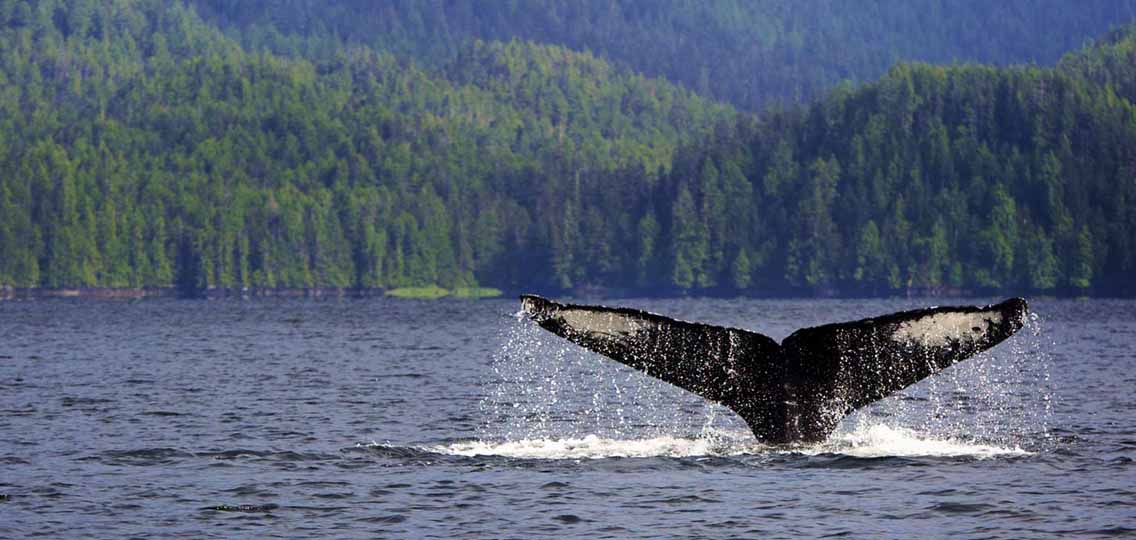Environmental groups are asking the Supreme Court of Canada to weight in on a legal precedent that restricts the public’s ability to challenge flawed environmental assessments.
When a panel of three Federal Court of Appeal judges struck down the approval of Northern Gateway, it was a massive win. Groups fought tooth and nail to halt a development that would have transported diluted bitumen through ecologically sensitive areas like the Great Bear Rainforest. Because the Government of Canada failed to adequately consult with First Nations, the project was struck down.
While the Court gave a favourable ruling based on the lack of adequate consultation, the Court also denied several other applications for judicial review, including one by Ecojustice that asked the Court to decide whether the environmental assessment was sufficient.
On September 21, we applied for leave to appeal that decision because it set an unfortunate precedent that could make it harder for concerned citizens to challenge environmental assessments in court. As we announced the launch of our appeal, supporters like you sent us many encouraging notes and asked important questions about what it means to challenge this precedent in the Supreme Court of Canada.
Below are the answers to your most frequently asked questions about appealing the Northern Gateway decision:
Wait! Wasn’t the Enbridge decision good for the environment? Why file an appeal at all?
When the Court nixed the approval for Northern Gateway, they did so on the grounds that the Government of Canada failed to adequately consult with First Nations. But there were several requests for judicial reviews based on flawed environmental assessments that were rejected.
When the Court rejected those reviews, they decided it wasn’t within the Court’s purview to decide whether an assessment is legal.
We’re filing an appeal because other companies around the country are already using the legal precedent to shut down judicial reviews of environmental assessments related to their project. For example, days after the Enbridge decision was released, Kinder Morgan brought a motion to dismiss a lawsuit Ecojustice lawyers filed on behalf of its clients over the National Energy Board’s flawed final report on the Trans Mountain pipeline project. And earlier this month, the Federal Court of Appeal relied on the Northern Gateway decision to deny an application by the Tsleil-Waututh Nation challenging certain decisions of the NEB with respect to the Trans Mountain project.
Could this reverse the dismissal of Northern Gateway and allow it to proceed?
The short answer is “No.” The courts have ruled Northern Gateway’s approval is null because the Government of Canada failed in its duty to adequately consult. We are not challenging the rejection of Northern Gateway.
Numerous groups made applications to the court for judicial review. While several First Nations succeeded in proving the Government of Canada did not adequately consult First Nations, our application for judicial review of the environmental assessment report was rejected, setting a regrettable legal precedent that says politicians may decide on the legality of an environmental assessment.
Northern Gateway isn’t going forward, so why does this case matter?
Even though Northern Gateway has been stopped, the precedent in this case could be exploited in the future. The precedent ties our hands when it comes to challenging environmental assessments in court. We need these avenues to make sure a judge, not government officials, are the final decision-makers on whether an assessment meets the requirements of law.
Northern Gateway threatened to ship bitumen from Alberta’s tar sands region to the pristine coast of Kitimat, B.C. The Joint Review Panel for the Northern Gateway project made some critical legal errors with respect to protecting humpback whales and balancing the environmental impacts of the project against the economic benefits. It is important that we have legal tools to that prevent political decision-makers from relying on incomplete environmental assessments.
Why is the precedent in the Enbridge case bad for the environment?
We’ve already seen two instances where challenges to environmental assessments have being denied through the precedent. Ecojustice are fighting to make sure fundamental concerns about Canada’s environmental assessment process are addressed in a legal setting. As I said when we announced this case: “The Court held that reviewing the legality of environmental assessment reports is outside its jurisdiction. However, we know all too well that environmental assessment panels make mistakes.”
The courts — not cabinet — have a crucial role in determining whether an environmental assessment report meets its legal requirements. This precedent takes away a critical method for reviewing project assessments. It means decisions that could destroy ecosystems and communities might not be made by impartial actors – putting Canadians and their environment at risk.
What are the chances the Supreme Court of Canada will hear this case?
In applications for leave to appeal, the Supreme Court of Canada decides if a case is of national importance. While the SCC grants leave to appeal in fewer than 10 per cent of cases, we believe that this case raises an issue of national importance with respect to the environmental assessment of future pipeline projects.
What happens next?
We’re working with Raincoast Conservation Foundation to make sure we can reverse this troubling precedent. We’ll argue that a court must be able to determine if an environmental assessment has been completed in accordance with the law. It’s part of our mission to create robust protections for the environment and the health of Canadians from coast-to-coast-to-coast.

